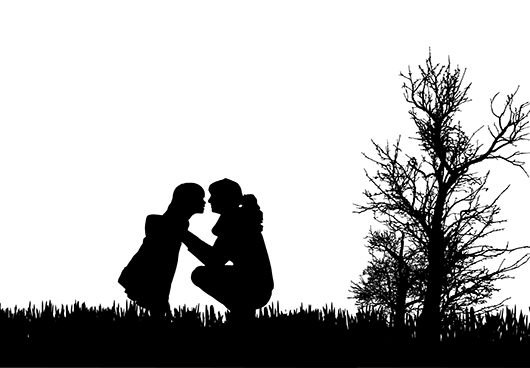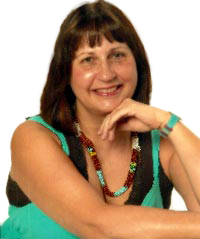My grandson is almost three and along with “I do it!”, “No!” and “Mine!” one of his favourite words asked a hundred times a day is “Why?”
“Carsie, let’s go,” I’ll say on any given day.
“Why?”, he replies.
“Because we have to go to school.”
“Why?”
“Because it starts at 9.00 o’clock.”
“Why?”
Carson always wins this game, not that we don’t have answers each time, because we do. He wins because at this age the need to understand is new, exciting and knows no bounds and we exhaust more easily. These are easy questions. They have the power to annoy or irritate us but they don’t make us anxious. As our kids grow so does the depth of their curiosity. Some questions can make us uncomfortable, like early sex questions and then there are those that can make us feel like we’ve been punched in the gut, like, “Am I going to die?”
My oldest son was eight when he realized mortality. Over a few weeks, his anxiety escalated to crippling proportions and so did mine. I would hear the sound of his feet running to our bedroom and could easily distinguish between a “normal” run and one that spoke of terror. With the latter, by the time he reached my bedside, my anxiety would equal his. I had never before felt so out of control in my parenting. Still trying to be the best parent I could be, I would placate him and calm him. I would reassure him that he wasn’t going to die because he was young and neither were we until we were a hundred.
Overwhelmed by my own anxiety, I lovingly lied. I made things worse – a lot worse. After struggling for some time, we took him to a psychologist to help him, and after assessing my son, my husband and I, she told me that my son would be fine but that I had a problem. I was furious at first but she planted a seed that took hold and gradually grew. With four kids who all faced death anxiety to some degree, I had many opportunities to work on my approach. I became better each time and by the time I had to deal with my last child, I considered myself well-versed and while I am usually adamant that the words expert and parenting do not belong together, I consider myself somewhat of an expert in this particular area.
Not all children journey through death anxiety but there are many who do. For parents who struggle like I did, here are my words of wisdom:
- Don’t ever lie to your kids. You will be found out. Young people do die. They will hear about that mass shooting in a preschool or that child who wanders away from his parents and freezes to death. Life reliably and consistently throws young tragic death at us. You cannot protect your children from knowing this. When you lie to your child about this, her anxiety will increase dramatically because she will feel unheard.
- Some “why” questions are not clearly resolvable but this doesn’t mean they cannot be dealt with. With this kind of anxiety, the best thing we can give our kids is our understanding. Our job is to effectively communicate this. When my daughter would fall apart over the possibility of her death or ours, I would lie with her but not lie to her. I would hold her, stroke her head and tell her that I understand how terrifying these thoughts are. I would allow her to have all her feelings. I wouldn’t try and calm her hysteria. I would simply comfort her while she did that on her own. This was the greatest tool I gave her. She is now 15 and I see her strong ability to deal with overwhelming anxiety about many different things.
- Share your own anxiety and personal perspectives. I tell my kids, truthfully, that I had similar fears as a kid and as an adult. I share ways that help me cope, like talking to others with similar fears. We are all in this together and all face the same fate. Talking is connecting and through connecting we find strength. I also share my personal belief in the afterlife.
- Teach your children relaxation techniques. Death anxiety is still anxiety with all its physical manifestations. My daughter’s particular favourite is one we both call “the dot.” We do this lying down. My daughter closes her eyes and takes a few deep, relaxing breaths. I tell her to imagine a luminous dot – this can be any colour. I then trace my finger around her body. Beneath my finger, the dot attaches like a magnet and follows the path I trace. The luminosity of the dot creates calm wherever it travels. That is its power. I start at her head tracing slowly and gently around the features of her face, her ears, and her neck. Imagine that you are drawing a whole human body. On reaching her toes I would reverse and finish the process once again at her head. As your child gets older his technique can easily translate into something they can do on their own, using only their imagination. I use it in this way on myself with great success.
- Anxiety’s greatest enemy is physical activity. For so many reasons, both physiological and psychological, exercise helps reduce feelings of anxiety and depression. I would go so far as to say that for me physical exercise is the best medication I have ever taken!
- Don’t tell your child (or anyone else) who is feeling intense anxiety to calm down. This is not helpful. If you feel the urge to do this, and as a parent I understand how strong this urge can be, help them breath instead. Simply say, “take a deep breath,” and take one yourself. This doesn’t discount their feelings and at the same time may calm them a little.
As a mortal, I am truthfully more perplexed by children who do not experience fears around death. Many parents will, as I did, try and push these fears away because they make us afraid too. Pushing away any anxiety, let alone death anxiety, never works. It will resurface, maybe not in its original form, but most certainly as a limitation to your happiness. When you help your child face death anxiety head on, their own life force will find ways to deal with it and give it as little power as possible so that, over time, they can enjoy their life more than the anticipation of their death.








